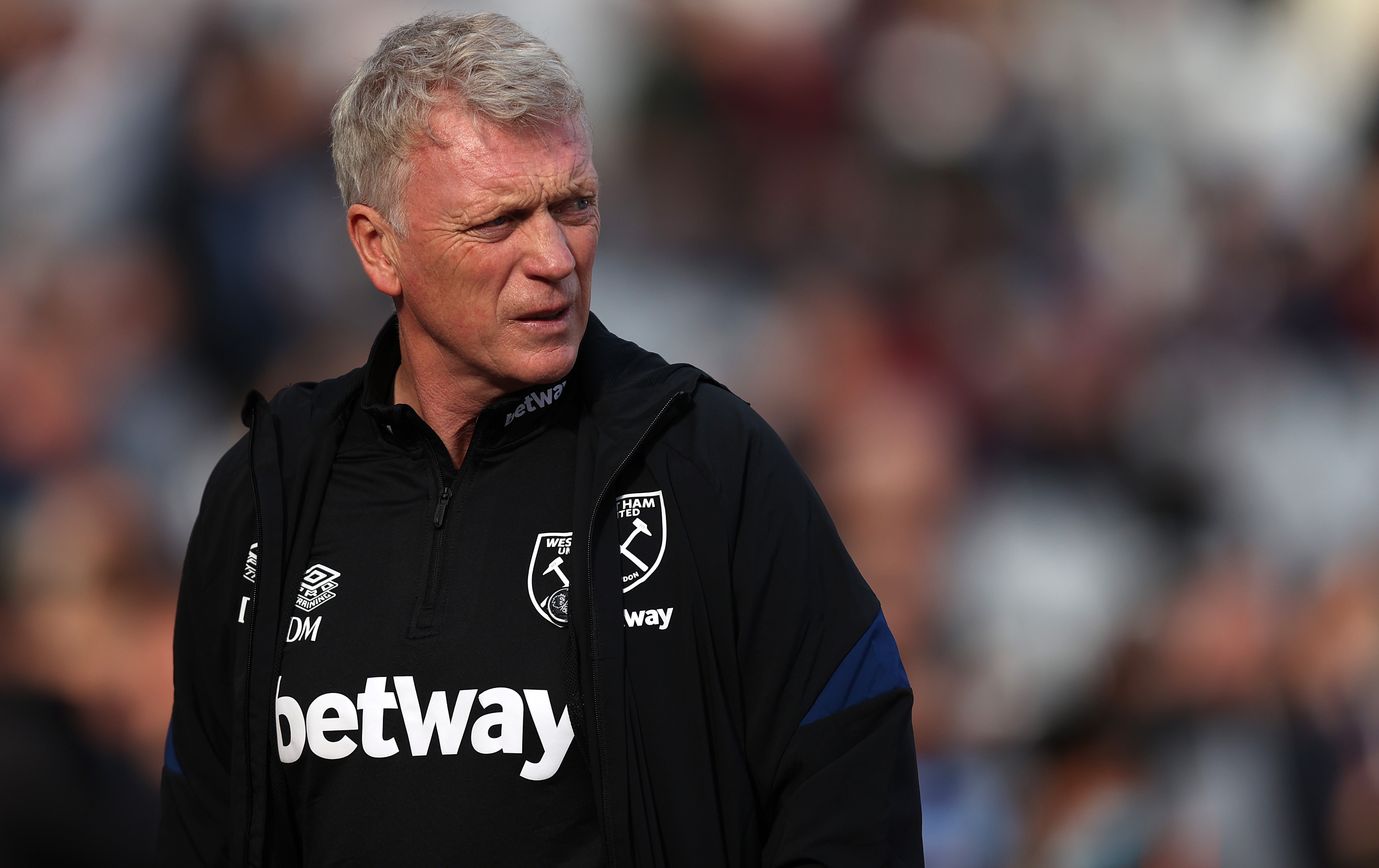How David Moyes made it to 1,000 games in management, with his career revitalised
David Moyes' stock may never have been this high during an epic career in management

David Moyes’ first game in management was in the Auto Windscreens Trophy at Macclesfield. The day afterwards, he played for Preston’s reserves in a bid to keep up his fitness. He brings up his thousand in Genk on Thursday. Game number 1,001 should come with West Ham in the top four and with the carrot of going above Liverpool with a victory.
Whereas Steve Bruce, who first managed a few months after Moyes in 1998 and whose 11 games as both player and manager were 10 more than the Scot mustered, limped to the landmark, reaching four figures before being fired after the fans marred a milestone by calling for his head, his West Ham counterpart gets there in a very different shape. Bruce has talked of retirement. Moyes, powered on by his second wind, has rejuvenated his career to such an extent that the best may be to come.

West Ham’s surge has given Moyes a timeless feel. His peers in the top four, in Thomas Tuchel, Jurgen Klopp and Pep Guardiola, are younger and seemingly more modern, radical figures who are bywords for philosophies. Meanwhile, Moyes seems to be recreating the job he did at Everton, recruiting well on a budget, finding hungry players, forging a side with a sense of unity, purpose and resilience, playing better football than is often acknowledged but prospering in part because of set-pieces.
After eight top-eight finishes with Everton, he has one with West Ham and is well on course to another. He equalled his highest points tally in the Premier League (65) last season; the drive that means he often reacts to victories by emphasising where he sees scope for improvement could help him top that now. He may be in the curious position of being the finest best-of-the-rest manager in Premier League history, the man who punches above his weight most often.
RICHARD JOLLY Why Steve Bruce deserves his place in the managerial 1,000 club
Moyes can feel unchanging, but his is a career in four parts: his rise began at the lower end of what is now League One with Preston and carried him to fourth with Everton in 2005. Then, after a dreadful start to the following season, came the groundhog years, as he invariably piloted them to fifth, sixth, seventh or eighth.
The third act was the chastening fall. He grasped the poisoned chalice of replacing Sir Alex Ferguson at Manchester United, had the bizarre interlude of a spell with Real Sociedad and was relegated with Sunderland, his honest realism feeling like a self-perpetuating pessimism as problems spiralled.
Get FourFourTwo Newsletter
The best features, fun and footballing quizzes, straight to your inbox every week.
But then came the incongruous partnership with West Ham; dissolved too soon by the club the first time, reunited after 19 months apart. It has been a cultural reset, looking to rid West Ham of their historic inconsistency, their expensive addiction to big names, their seduction with style at the expense of substance. A reinvention has come courtesy of Moyesian methods.
Towards the end of his time at United, he was cruelly barracked with taunts of “David Moyes is a football genius.” He is not, and would not claim to be. He compensates with hard work, attention to detail and finding like-minded characters. In Michail Antonio, Jarrod Bowen, Aaron Cresswell and Said Benrahma, each with a background in the lower leagues, he has equivalents of those who seized their chance at Everton. In Stuart Pearce, Kevin Nolan, Billy McKinlay and Alan Irvine, he has a battle-hardened backroom staff, resolutely unglamorous, untouched by genius but evidently forming an effective unit.
The unlikely lads can feel a throwback coaching staff and Moyes the anomaly in the top four. Another recent addition to the thousand club, Jose Mourinho, has taken a rather more star-studded path than Bruce or Moyes, who has built his achievement around 518 games at Everton. That 11-year reign is another element with an anachronistic feel, but as some of the thousand club start to feel yesterday’s men, with Roy Hodgson, Mick McCarthy and Bruce leaving jobs in recent months, and it is harder to imagine others will follow in Moyes’ path from the foot of the third tier towards the top of the Premier League over a two-decade odyssey, a reason for his staying power is that he has rarely felt as relevant as he does now.
Moyes was never the generic old British manager some pretended; not when, with the obvious exception of Ferguson, he is arguably the Premier League’s most successful Brit of the 21st century, but he stands out more now because of the lack of comparable figures. For Bruce, it was a thousand and out. For Moyes, it is a thousand and the question of what comes next for the survivor who has revived his career by returning to his past.
Subscribe to FourFourTwo today and save over a third on standard price.
Restock your kit bag with the best deals for footballers on Amazon right now
ALSO READ
LIST Football Manager 2022: All the FM22 wonderkids you'll need to sign
Richard Jolly also writes for the National, the Guardian, the Observer, the Straits Times, the Independent, Sporting Life, Football 365 and the Blizzard. He has written for the FourFourTwo website since 2018 and for the magazine in the 1990s and the 2020s, but not in between. He has covered 1500+ games and remembers a disturbing number of the 0-0 draws.

